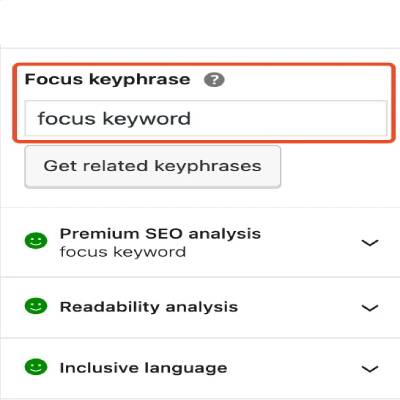Without proper online presence in this digitized world, a company cannot continue to sustain itself. Therefore, the role of Search Engine Optimization (SEO) services comes in by making sure that your website reaches your targeted audience appropriately. Among the many parts that make up SEO, keyword research and strategy stand top on the list of critical areas of visibility and favorable rankings on SERPs.
Why is SEO Important?
SEO lays the basis of any kind of online marketing practice. This practice helps make your website accessible at the right moment, in front of the appropriate crowd. There are several crucial reasons why one would want SEO.
Improved Visibility: It enhances your rankings with the help of SEO and gives it higher places with the search engine so that prospects have better ease to look at your business.
It pulls targeted traffic with active users finding your products and services by simply optimizing your website with the keywords.
It brings credibility and trust since the results mean more for the credibility of your site as its users feel it’s reliable; the ranking is on a site this high makes one stand out.
This gives sustainable results which are cost effective, since this is an investment, and unlike paid advertisement doesn’t give off the spendthrift feeling.
Better User Experience: SEO essentially tries to bring a seamless experience to the end-user, meaning higher engagement as well as more conversions.

Significance of Keyword Research
In the core of any successful campaign of SEO comes keyword research. Broadly speaking, it is the process which defines the exact terms or words that your targetted audience uses during searching for whatever information, goods, or service they want through the internet. This is where its importance stands.
It shows what users are looking for and thus helps in creating content that matches their needs.
Targeted Traffic: Proper keyword research ensures that your content is attracting visitors who are more likely to convert into customers.
Competitor Insights: Analyzing the keywords your competitors rank for will help you identify gaps and opportunities to outperform them.
Content Strategy: You can plan content based on keyword usage, enhancing engagement and ranking.
Types of Keywords to Target
When ranking, there are correct kinds of keywords one should use. Here are the main types:
Short-Tail Keywords: Short-tail keywords are very broad and general in nature, as in “shoes” or “SEO services.” In this case, they attract the highest search volume, but massive competition usually ensues with very low conversion rates.
Long-Tail Keywords: For instance, phrases would be “the best running shoes for women,” or “effectiveness of small business SEO strategy.” They contain fewer search volume, but ensure the right conversions.
Branded Keywords: The keywords would point towards your brand name with the mention of your brand. For example, “Nike running shoes” or “Mhorkya SEO services.” These words are very efficient for repute building and the development of a loyal base.
Geo-Targeted Keywords: These are superb for the local business. For example, “SEO services in New York” or “pest control in Los Angeles.
Transactional Keywords: The keywords tell the users that they want to purchase something. Such as “buy running shoes online” or “cheap SEO packages.
Informational Keywords: These serve the users that want to learn something. Such as “what is SEO” or “how to optimize a website for speed.
How to Focus on Keywords
Half the battle lies in selecting the right keywords. However, actually inserting them into your SEO efforts strategically is a much tougher task. Here are a few tips that really push keyword usage into focus:
Optimize On-Page Content: Use primary keywords naturally in page titles, meta descriptions, headings, and throughout body text.
Create High-Quality Content: Develop information-based, engaging, and value-driven content that answers user queries.
Use LSI Keywords: LSI keywords are keyword variants that help the search engines decipher what the content is. For example, for the keyword “SEO,” related terms would be “ranking” and “search engines.
Track Keyword Performance: Track keyword performance using analytic tools like Google Analytics and Search Console to decipher whether your keyword set is working as expected and accordingly adjust your strategy.
User intent: It will be relevant when the keyword
intended content, if it’s more informational or perhaps to navigate on or
transactional.

Use Your Target Keywords As Anchor Text on Backlinks
Use anchor texts for the links pointing towards your site that helps strengthen its relevance and authority for the respective search terms.
Conclusion
In SEO services focusing upon keyword research, strategy becomes extremely important in getting businesses in good shape. Knowing the importance of SEO, choosing the right types of keywords, and strategically using them in your content and campaigns will help you reach higher rankings, drive targeted traffic, and expand your online presence. SEO is not a one-time task but rather an ongoing process that evolves with user behavior and search engine algorithms. Invest in a strong SEO strategy today to make sure your business is competitive tomorrow.
